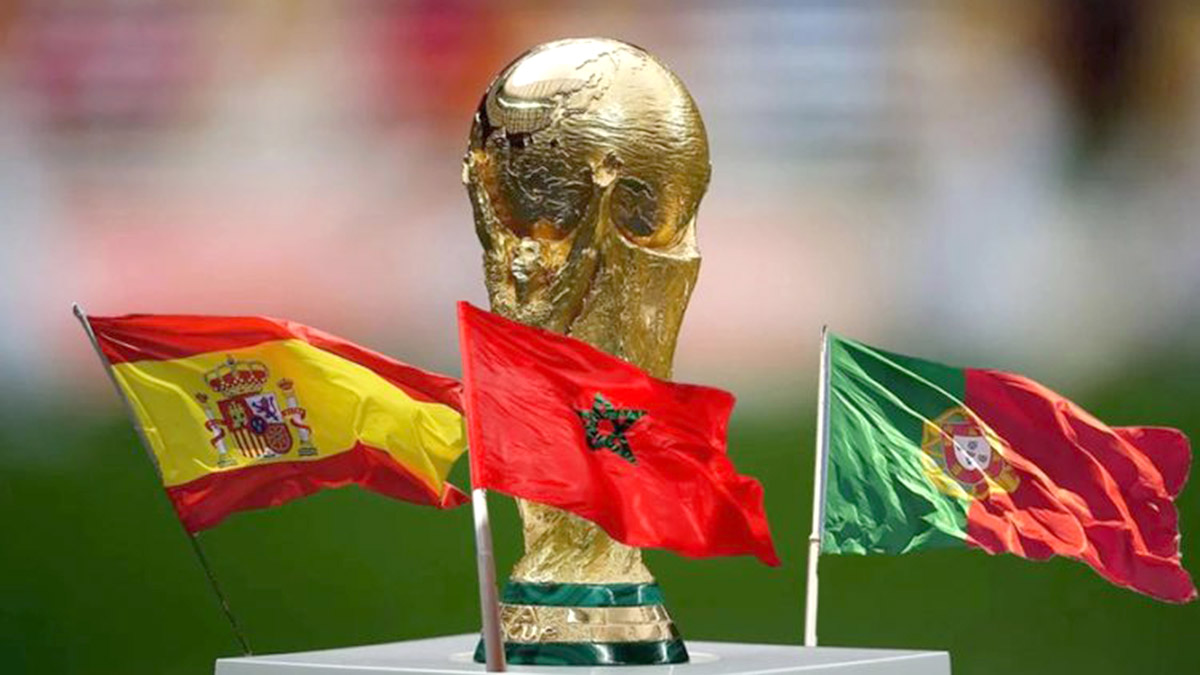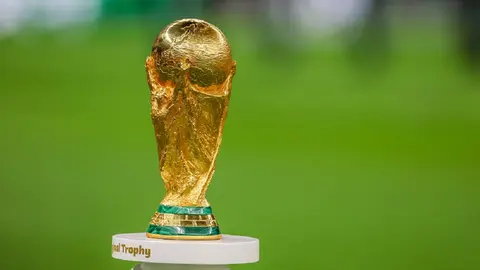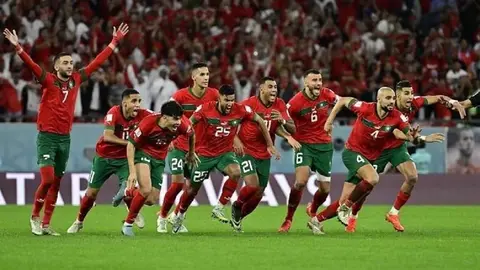Morocco's hosting of the 2030 World Cup hurts Algerian regime

Never before have two neighbouring countries united by ties of blood, history, language, religion and destiny reached the state of animosity and enmity in which Algeria and Morocco find themselves. In all fairness and in the light of history, it must be acknowledged that all the evil stems exclusively from the Algerian regime. It is a regime that has been suffering from a lack of legitimacy in its own country since the people began to boycott en masse all elections, which were marked by grotesque fraud.
In its quest for success on the international stage to make the population forget its daily problems, including the endless shortages of basic necessities and the total absence of even the slightest comfort in daily life, the Algiers regime has been rebuffed in every instance where it has tried to carve out a niche for itself that it could be proud of and capitalise on.
At the Arab summit in Jeddah in November 2022, the Algerian president was not officially invited to attend, only to be represented; he was denied access to the BRICS and his good offices mediations in Ukraine and Niger were rejected.
In trying to resort to what is presented as the "opium of the people" of modern times, football is not smiling on the Algerian leadership either. Champions of Africa in 2019, a few months before the advent of the "new Algeria", Algerian football has aligned itself with the country's diplomacy, with a string of failures both on the pitch and in the governing bodies of African and world football.

Prematurely eliminated in the first round of the 33rd Africa Cup of Nations in February 2022 in Cameroon and in the final stages of the 2024 World Cup in Qatar, the Fennecs (as the Algerian national team is known) were unable to give the tenant of the El-Mouradia palace and his partner Les Tagarins the long-awaited opportunity to make a name for themselves in the world of football, the long-awaited opportunity to make Algerians forget the repression suffered by any citizen who wishes to express himself freely and to distract them from their perpetual problems of supply of all products, starting with water, which flows scarcely from the taps for only a few hours a week for the most fortunate.
The African championship of local teams (CAN), hosted by Algeria in February 2023, has returned to Senegal, another missed opportunity to restore Algerian football's tarnished reputation over the past four years. In addition to the defeats on the pitch, there have also been failures on the part of football's governing bodies.
Algeria, which aspired to a seat on the executive committee of the Confederation of African Football, suffered a real slap in the face, which it passed on to its representative, who was forced to resign after his failure. It was Libya, a nation whose football is far from rivalling the continent's big names, that would defeat Algeria, two-time CAF Africa Cup of Nations champions whose numerous teams have won the African title at club level, as well as having participated in four World Cup finals, including the 1982 World Cup, marked by a historic victory over the German ogre on Iberian soil.

With the failure of their representative, the whole "new Algeria" has been rejected by the African continent. For those who prefer to live in denial and turn their eyes away from reality, the failure of the bid to host the 2025 or 2027 edition of the Africa Cup of Nations will be the death knell. This last failure was suffered in the face of the deadly enemy identified by the highest authorities, who decided brutally and without the slightest justification, on 24 August 2021, to break off diplomatic relations, before taking a further step a month later, on 22 September, by announcing, at the end of an urgent meeting of the High Security Council chaired by Abdelmadjid Tebboune, the closure of airspace, in addition to the land borders that had been closed since 1994.

This enemy, once a brother in arms against the French occupiers and a staunch supporter of the Algerian war of liberation, continues on its path to success in the world of roundball. Morocco put in an astonishing performance at the 2022 FIFA World Cup Qatar, achieving the historic feat of qualifying for the top four in the nations' concert. It also won by a landslide the organisation of the 2025 Africa Cup of Nations, to the detriment of its Algerian rivals, who preferred to withdraw rather than suffer the embarrassment of an electoral defeat. A few days later, Morocco itself received the confidence of FIFA to host the 2030 World Cup alongside Spain and Portugal.
Morocco thus has the honour of hosting the centenary of the football World Cup on its soil, and is proud to be the first African country to partner with two European countries to organise a major world sporting event. It is an achievement that will surely be the envy of the ill-tempered and bellicose leaders of our neighbouring and brotherly country

As an oil and gas country, Algeria is immensely rich. In addition to its hydrocarbon wealth, it has huge deposits of iron, phosphates, gold, manganese and other minerals. Its vast territory is a tourist paradise that is sadly untapped. More than 1,200 km of Mediterranean coastline, a vast desert waiting to be exploited, picturesque landscapes and historic sites that are unique in the world.
Just open to tourists the Baloul towers in the Aurès (eastern Algeria), where you can admire 8- and 12-storey buildings. These buildings date back more than 16 centuries. It is the Amazigh (Berber) civilisation that the Algerian authorities refuse to value and recognise. In the same region, the Ghoufi balconies, a real natural curiosity, could be a real attraction for millions of tourists, as could the Tassili and its park of marvellous rock engravings. Unfortunately, all this wealth is wasted and not exploited for an economy dependent on the easy extraction of oil.
All this wealth is not enough to make Algeria a self-respecting state, as mismanagement remains the hallmark of its leaders. The same people who ordered the local media not to mention Morocco every time it played at the World Cup in Qatar, what would they do to prevent Algerians from sharing with their Moroccan brothers the joy and pride of organising the 2030 World Cup? An event that will undoubtedly take place in a climate of reunited fraternity, once the biological clock has run out for these old fogeys, whose days are numbered.












